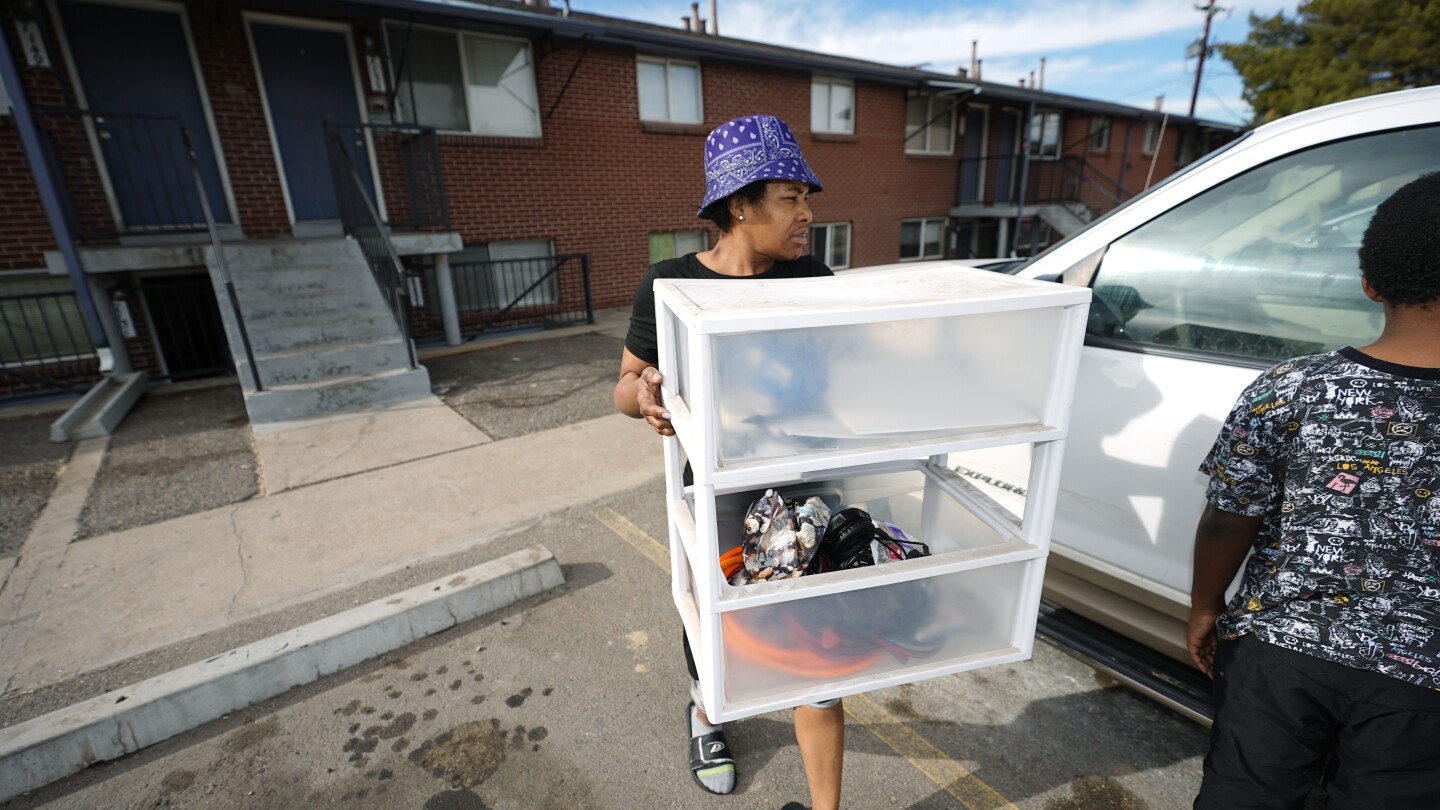- cross-posted to:
- news@lemmy.world
- cross-posted to:
- news@lemmy.world
Single mom Caitlyn Colbert watched as rent for her two-bedroom apartment doubled, then tripled and then quadrupled over a decade in Denver — from $750 to $3,374 last year.
Every month, like millions of Americans, Colbert juggled her costs. Pay rent or swim team fees for one of her three kids. Rent or school supplies. Rent or groceries. Colbert, a social worker who helps people stay financially afloat, would often arrive home to notices giving her 30 days to pay rent and a late fee or face eviction.
“Every month you just gotta budget and then you still fall short,” she said, adding what became a monthly refrain: “Well, this month at least we have $13 left.”
Millions of Americans, especially people of color, are facing those same, painful decisions as a record number struggle with unaffordable rent increases, a crisis fueled by rising prices from inflation, a shortage of affordable housing and the end of pandemic relief.
The latest data from the Harvard Joint Center for Housing Studies, released in January, found that a record high 22.4 million renter households — or half of renters nationwide — were spending more than 30% of their income on rent in 2022. The number of affordable units — with rents under $600 — also dropped to 7.2 million that year, 2.1 million fewer than a decade earlier.
…
In Congress, lawmakers are working on a bill that would expand a federal program that awards tax credits to housing developers who agree to set aside units for low-income tenants. Supporters say that could lead to the construction of 200,000 more affordable homes. Some lawmakers are also calling for more rental assistance, including a significant increase in funding for housing vouchers.



I own a place that I rent out. I am having a hard time figuring out how people are charging $3,000 plus a month. I don’t charge anywhere near that. The only time I raise my rent is when the city increases the cost of their taxes/fees, or if insurance for some reason goes up. Is it actually that expensive for property taxes and other things there or is just greed?
Greed plus high demand and low supply.
I would say it’s fair to raise it for increased maintenance costs as well. Most of us aren’t mad that we have to pay for housing. We’re mad we’re so obviously getting taken for a ride by companies operating illegally to control prices.
It’s been a few decades since I’ve rented, and my previous landlord was very transparent with providing information about increased taxes and utilities to explain why rent was increasing. He knew that if he just increased it for the lolz, I’d happily just find another place to rent.
With the market being the way it is, the shortage has provided the leverage crooked people can use against renters.
I do wonder how many landlords are crooked, and how many are being forced to drive up rent due to the rise of excessive tax hikes, insurance premiums, utilities, maintenance and labor costs, etc. I know personally, my home’s property taxes have more than tripled in the past 5 years. I’m now priced out of my neighborhood.
Lol the tool who downvoted you after reading your first sentence but couldn’t be bothered to read the rest…
But yes the answer is absolutely greed. And the naivety that “oh look this place over here rented for $500 more I guess I can charge $500 more too…” + “Why would I lose out on $6000/yr?!” + “If I still rent out for what I was renting it out for some losers will just move in.” + “This is how an investment works! I get more money because time and not because I actually improved the home to justify $500 more.” … The list goes on …